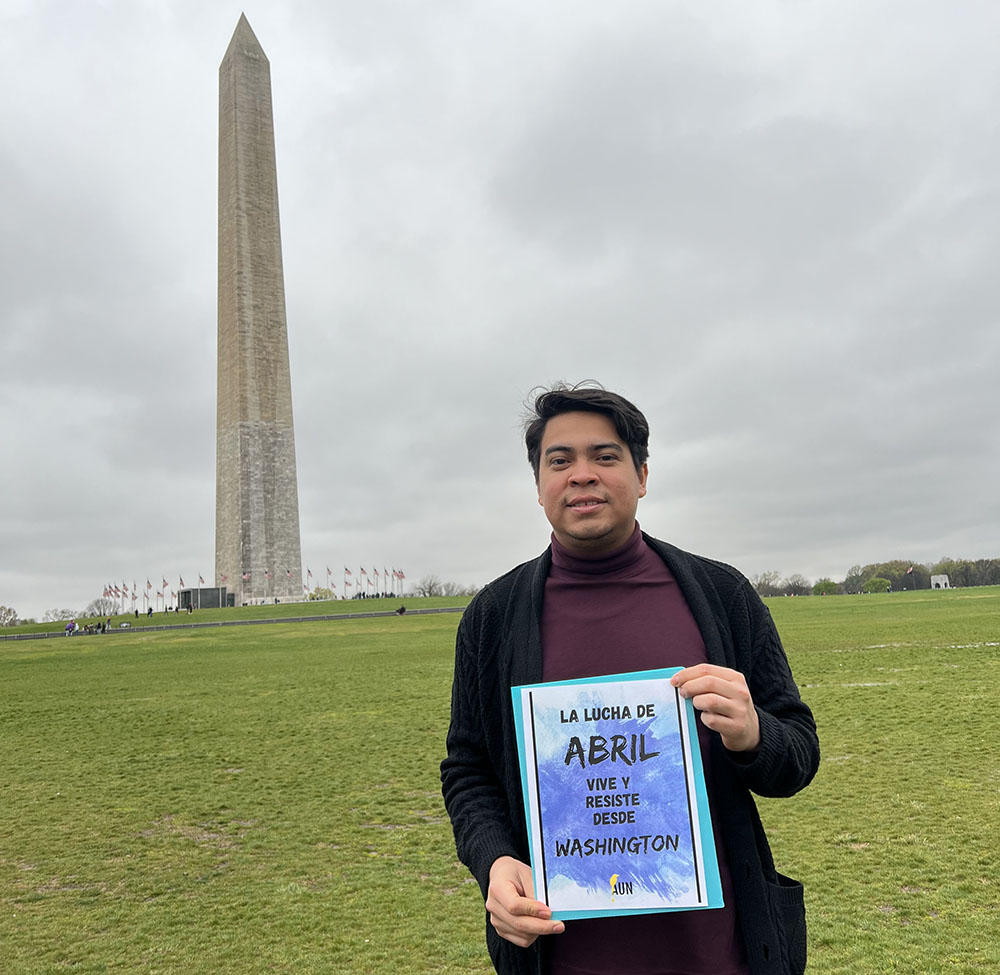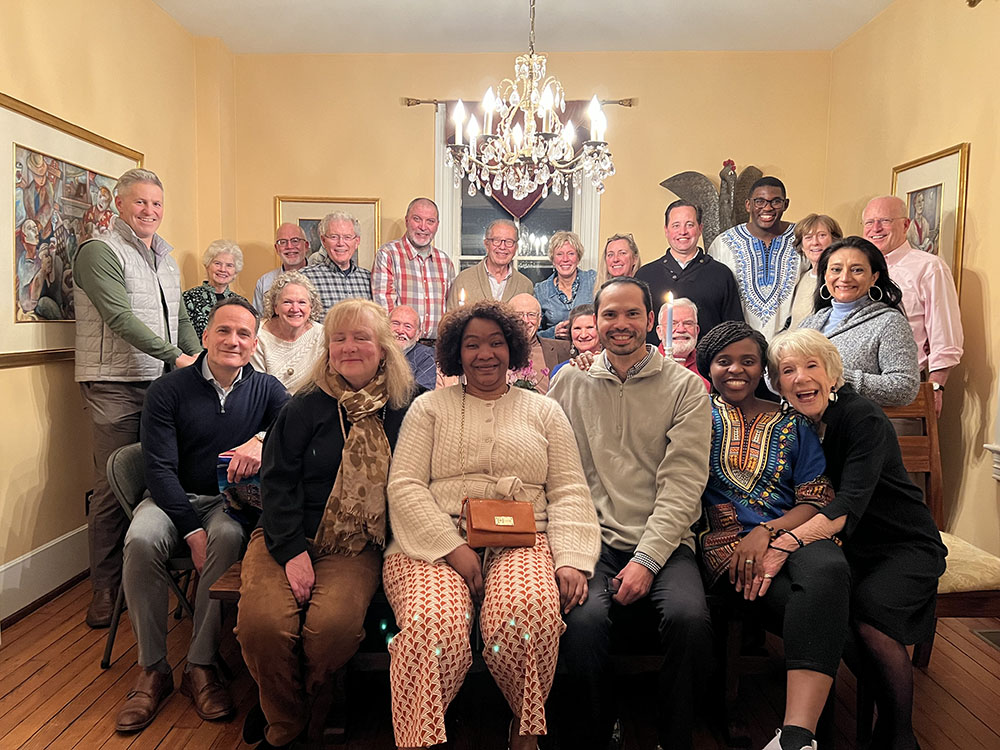
WASHINGTON — When 25-year-old Miguel Flores arrived at Dulles International Airport just outside of Washington last February, he had nothing but a three-day voucher for a hotel, some cash, and a cell phone provided by the U.S. State Department.
Flores was one of 222 political prisoners, including four priests, several students, and political activists who had their Nicaraguan citizenship removed and were sent to the United States, exiled by President Daniel Ortega.
Flores had been imprisoned with a 10-year sentence just weeks before, charged with conspiracy and propagation of false news after participating in anti-government protests and criticizing Nicaraguan government leaders on social media.
After his initial hotel stay in the U.S. ran out, he found some people to stay with, but he knew he needed to learn English quickly and get a job.
So when he received a text from a friend saying that Holy Trinity Parish in Washington was offering to connect with him and give him support, he immediately found his way to the Jesuit church located just blocks from Georgetown University.
Migrant Familia, a group at the parish, has been helping refugees for the past seven years to find what they need to become settled here with everything from transportation, medical appointments, legal help, housing assistance, and English classes.
After the Nicaraguan exiles arrived last year, a priest contacted the group and asked them if they knew of a way to help them.

Ashley Klick, Holy Trinity’s pastoral associate for social justice, said the group reached out to those they could and 18 showed up for a meal, including lawyers, students, and farmers, all daunted by what they needed and the amount of stress they had been under.
“It’s a mess and we’re going to figure it out,” Klick said parishioners told the group.
Flores, who was there that first night, said the group was asked what they needed and many of them, himself included, said English classes. They were given computers so they could take some classes online that the parish group also paid for.
He said he almost didn’t know what to think of those volunteering to help because after what he had just gone through, he didn’t trust anyone.
When asked if he needed clothes or emotional support, he agreed to both.
Now, more than a year later, he is sharing an apartment, working in a hotel kitchen after completing a culinary training program, and speaking English. He told The Tablet that he feels “part of this family, part of the church” and that even though he is not religious, he can see “how parishes are connected and can help people who are vulnerable.”
Klick said the parish group follows Pope Francis’ model of accompaniment, of simply walking with people and helping them. It provides refugees who want assistance with two liaisons to help them through their first 90 days with whatever they need.
Parishioners also volunteer to be mentors either with conversation help or assistance in how to take the subway or open a bank account.
She said the group’s main purpose is to bring hope, to tell people that they will stay with them as they figure things out and start their lives in this country.
That has certainly been the experience for Flores, who acknowledges he is still figuring out his way forward, missing family in Nicaragua and hoping to someday return to the country he never wished to leave.
For now, the situation there is not improving.

A recent OSV News report said Nicaraguan leaders have cracked down on all forms of dissent and have portrayed the Catholic Church as an enemy for its attempts at finding a political solution to 2018 protests calling for Ortega’s ouster and subsequent work with the families of political prisoners.
Bishop Rolando Álvarez of Matagalpa, who regularly denounced the regime’s excesses, was imprisoned for 500 days and exiled to the Vatican in January along with another prelate, Bishop Isidoro Mora of Siuna, and 17 other churchmen.
Flores said he wants to help Nicaraguans coming to this country, who like him last year, need basic assistance.
“If I was not supported by Holy Trinity, I don’t know what I’d do right now,” he said, adding that the parishioners, whom he still keeps in touch with, didn’t just give him charity but guided him.
“Right now, I’m more comfortable, I’m part of this city,” he said, adding that with his new life here he has been given a second chance.
The Holy Trinity parishioners “tell me I’m amazing,” he said, “but I am grateful they made that possible.”
